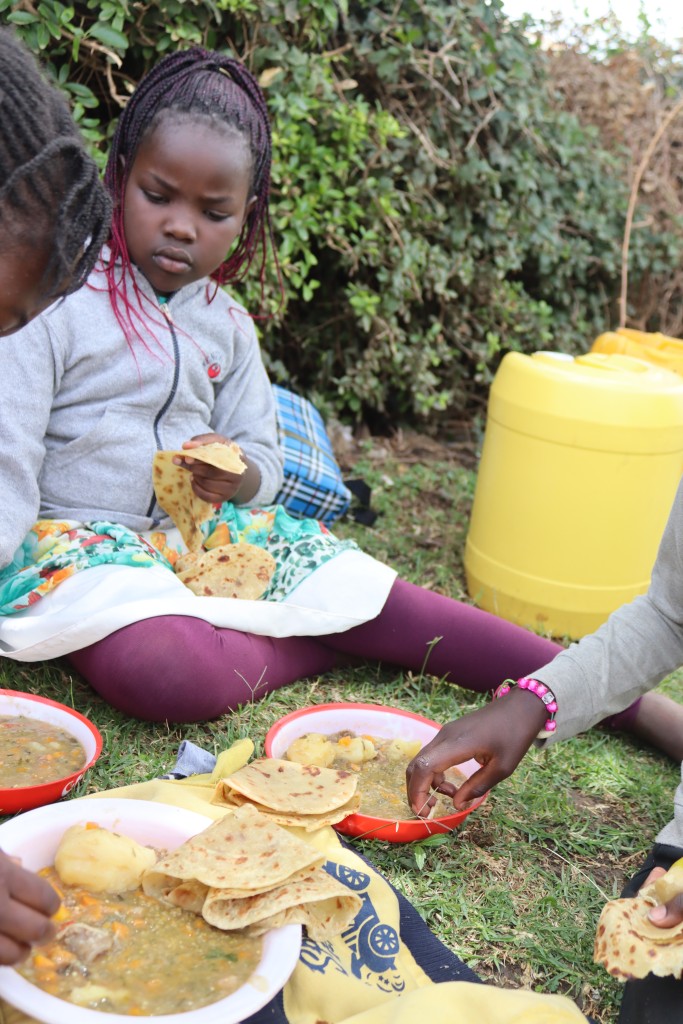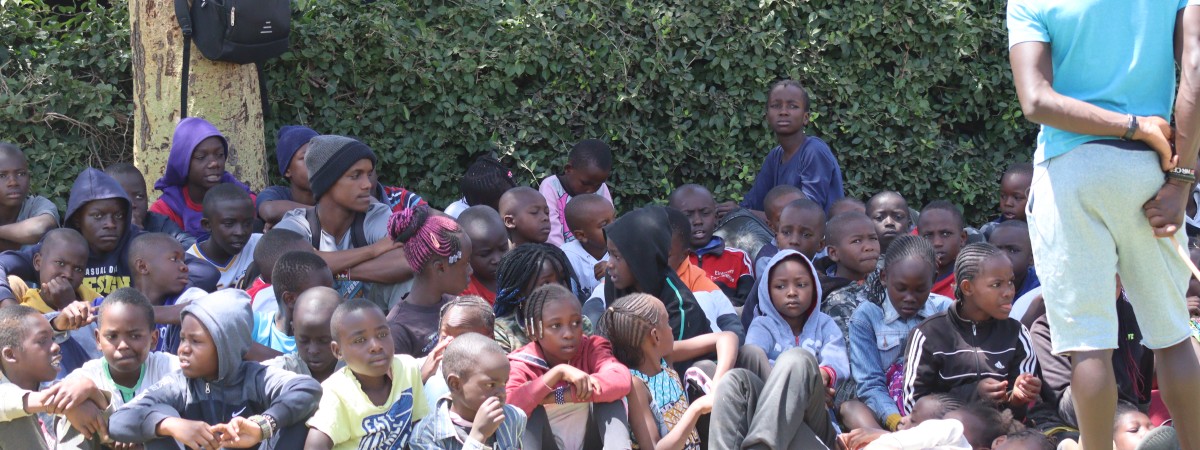While our main purpose is education we know that nutrition, good health, and a safe living environment are important to learning. To maximize student success, our program provides safety and well-being for our students:
Nutrition

- Breakfast and lunch on school days: We know that it is important for children to begin the day with something in their stomachs so we provide our children with a nutritious breakfast. School lunch has been a part of the program since its inception. Through these programs, each primary-age child receives at least two meals daily during the school week. High school students are in boarding school and receive three meals daily plus tea.
- Lunch on Saturdays: Lunch is provided to the children each Saturday during the Saturday Programme.
- Meals during school holidays: Children are out of school for two weeks in April and August and for two months at the end of the year (November and December). We provide both breakfast and lunch each day for all children at a central location.
- Family food aid: If a family is in a particularly dire situation, they can request family food aid and we provide basic foodstuffs to get them through the short-term problem. Each caseworker is given an allocation of food to disseminate to the neediest families.
Health Care
- Health monitoring and basic medical care: In 2009 we started a program to monitor the health of the children in the program. We provide a nurse during the Saturday Programme who does routine “well-child” exams on a rotating basis and sees children who are ill. If a child becomes ill their parent or guardian comes to the office for a voucher and then visits a clinic for treatment.
- De-worming medication and multi-vitamins: An important preventive care treatment in the developing world where clean water and sanitation facilities are often unsafe is to administer de-worming medications. Our Saturday Programme nurse does this on a regular basis as well as administering multi-vitamins weekly.
- Eye care: If we receive a report that a child is unable to see properly, we collaborate with the Lions Eye Hospital of Nairobi to provide exams and glasses. In a few cases, children have required surgery for juvenile cataracts which we have funded.
- Dental care: We provide minimal support for dental care, giving children a new toothbrush annually and instruction on dental care. If a child’s schoolwork is disrupted by a toothache, we pay for dental care to handle the emergency.
Safety Checks: Caseworker Home Visits
- Assessments: We have found that it important to keep tabs on the home environments of the children. Many of these families are unstable and we are sometimes able to intervene to correct situations that are deteriorating – or remove the child from that environment if necessary.
- Meetings with parents, guardians, and teachers: Caseworkers visit the child’s home twice annually and the school once annually to gain perspective of the adults in the child’s life about what should be done to enhance the child’s chances for success.
